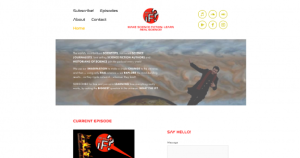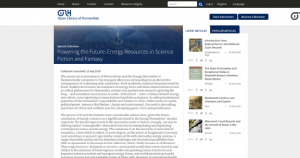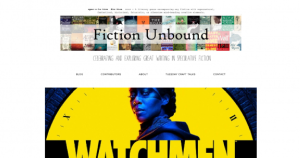General Interest
Back to Top
|
 |
|
The Past & the Curious
|
Social studies |
|
Teachers, parents, and kids, as well as anyone who enjoys learning about history, may want to check out The Past and the Curious. Launched in 2016, this entertaining and educational podcast is the brainchild of its host and producer Mick Sullivan, a musician by training who works at the Frazier History Museum in Louisville, Kentucky, as the Manager of Youth and Family Programs. The Past and the Curious aims "to share true stories of inspiration, humor, and the incredible achievements of all types of people, many of which are sadly under-shared, and to do so in an easily accessible and diverse manner." Each approximately 30-minute episode features two stories from history that intersect thematically in some way, such as "Mechanical Monsters!" (Ep. 36), which tells the stories of Frankenstein author Mary Shelley and of a chess-playing automaton that appeared to defeat Napoleon Bonaparte. In addition to history, each episode also strives to incorporate some new vocabulary for listeners. Those interested can stream episodes online at the link above, and The Past and the Curious can also be found on podcast apps such as Kids Listen, Overcast, and Spotify. [JDC] |
|





|
|
 |
|
 |
|
The Feather Book of Dionisio Minaggio
|
Arts |
|
This digital exhibition from the McGill University Library in Montreal offers visitors a look through a unique volume known as the Feather Book of Dionisio Minaggio, a work composed of "a collection of illustrations made completely of bird feathers - with a few added extras" such as the birds' beaks, claws, and skin. This curious book was created in 1618 by Dionisio Minaggio, the Duchy of Milan's chief gardener. Here, visitors can peruse all 156 of the Feather Book's plates. The first 114 plates depict various species of birds, such as shoveler ducks, Egyptian vultures, and green woodpeckers, most of which are found in the Lombardy region of Italy surrounding Milan. The remaining plates (which are also made of feathers) depict human figures and are grouped into collections of hunters, commedia dell'arte characters, musicians, and tradesmen. Each plate is accompanied by a brief description of its content and condition, and readers can click the images to view them at full resolution. Although the reasons for the Feather Book's creation are unknown, some scholars believe that it "may, in fact, represent the oldest collection of bird feathers - as bird specimens - in existence," making it scientifically as well as artistically valuable. [JDC] |
|





|
|
 |
|
Open SUNY Textbooks
|
Science |
|
Instructors and learners who are on the lookout for free educational materials may want to check out Open SUNY Textbooks. First launched in 2012, this resource is an open-access textbook publishing initiative of the State University of New York Libraries that is managed by Milne Library Publishing at SUNY Geneseo. At the link above, readers will find (as of this write-up) approximately 40 college-level textbooks and other open education resources (OER), roughly half of which are original textbooks published by this initiative and all of which are openly licensed and available to download for free. These resources cover a broad range of disciplines, from STEM subjects like mathematics and microbiology to humanities subjects like film production and poetry. There are also resources to support general learners, such as guides on information literacy and academic writing. While visitors can browse the collection by author, subject, or SUNY affiliation, it may be more helpful to conduct a keyword search or to view all the resources on one page by clicking Browse Textbooks. In 2017, Open SUNY Textbooks was selected to partner with OpenStax (see the 3-22-2019 Scout Report), another major OER initiative. [JDC] |
|





|
|
 |
|
Smithsonian Folkways Recordings
|
Science |
|
Billed as "a cross between a record label and a museum," Smithsonian Folkways Recordings is a time capsule for the history of music. From 1948 to 1986, the record label Folkways Recordings released over 2,000 titles. Users can browse for recordings by genre, geography, artist, and label, as well as search with a query bar located at the top right. There are also numerous playlists, videos, podcasts, and articles that visitors can filter by genre, country, artist, or instrument (all accessible under the Explore tab). Educators may also want to check out the Learn section, where they will find more than 100 free lesson plans for a wide range of grades, all downloadable in PDF form. Since acquiring the label in 1987, the Smithsonian Institution Center for Folklife and Cultural Heritage (featured in the 11-30-1999 Scout Report) has expanded Folkways into a multimedia company. Their Smithsonian Folkways Magazine (also accessible via the Explore section) highlights artists from around the world, offering articles and audio. The magazine is published one to four times annually and focuses on themes such as migration and education. Readers can access issues of the magazine dating back to April 2009 under a dropdown menu at the bottom of the section. [AL] |
|





|
|

















